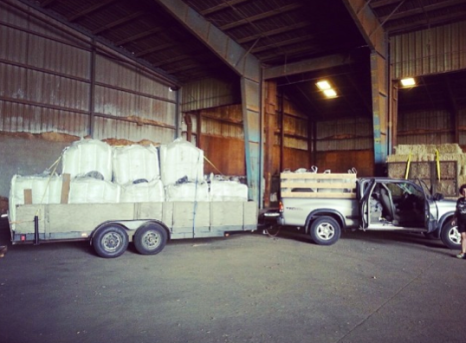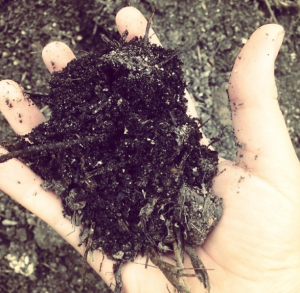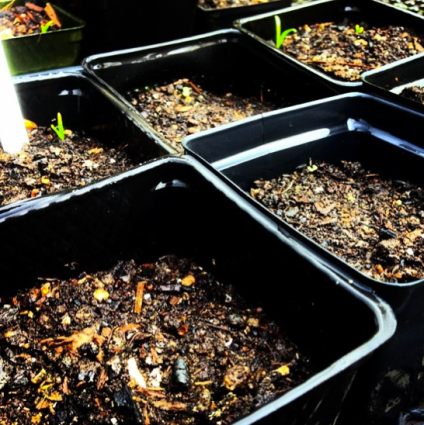http://instagram.com/p/rkZkiHR9IM/?modal=true
At 5am, we blasted the radio and took off for Philomath, OR in a pickup truck 65 miles an hour. We prepared to pick up 4,500 pounds of biochar there at an industrial site. When we finally arrived around 9:30am, we met John and Phil who gave us a tour of the machinery that makes biochar and the chemistry that makes it all happen.
After that, of course, it was time for the loading. Using a forklift and the power of four people, we packed 15 300-pound bags of biochar into our truck and our farm trailer.

After making our first stop at Long End Island farm, we noticed a flat tire on our trailer. We carefully drove to the puget island ferry and went across the river, flat tire and all, to Westport, OR.
We waited on the side of the road for our friend Jack to help us change a tire and as we waited, a man named Brandon and his son stopped and helped us fix the flat which sent us, gratefully, back on our way again.
Then, it was time to make our next deliveries in Westport before finally wrapping up for the day and heading home. As we made our next delivery, we met a couple interested in our soil consulting work and we discussed with them the importance of three main things to maintain healthy, living soil: Biochar, Mineral Balancing, and Composting.
All in all, yesterday was a success as we continued to spread biochar across the Pacific Northwest to begin to improve the soil quality there dramatically. Stay tuned for our next big adventures.

 decay into an organic matter mixture called humus which is not to be confused with Hummus, the delightful garbanzo bean dip. You don’t want to eat humus, but you do want to eat the produce when such a mixture is its growing the soil. Humus increases the nutrient contents of soil and even allows the soil to hold moisture that keeps it hydrated.
decay into an organic matter mixture called humus which is not to be confused with Hummus, the delightful garbanzo bean dip. You don’t want to eat humus, but you do want to eat the produce when such a mixture is its growing the soil. Humus increases the nutrient contents of soil and even allows the soil to hold moisture that keeps it hydrated.